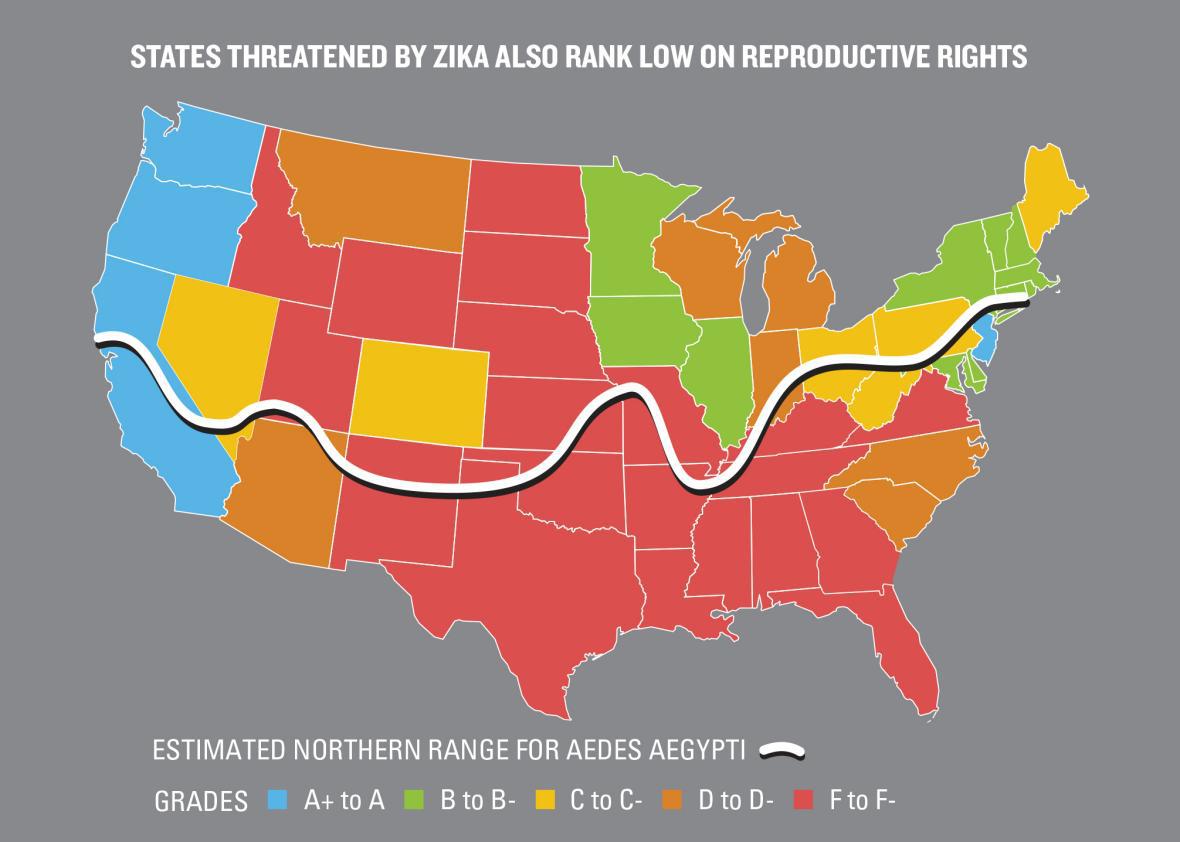The Obama administration finally seems likely to receive some of the $1.9 billion it requested last February to protect the nation against the Zika virus. Weeks after Centers for Disease Control and Prevention Director Thomas Frieden proclaimed that, in the fight against the virus, the government’s “cupboard is bare,” Senate Majority Leader Mitch McConnell is reportedly considering attaching as much as $1.1 billion in Zika funding to the spending bill that must pass by September 30 to avert a government shutdown.
This isn’t the first time Congress has considered funding for Zika, which can cause flu-like symptoms in adults, but has also been linked to severe birth defects—including microcephaly, a rare disorder impeding brain development—when carried by pregnant women. A $1.1 billion bill failed in Congress in June when the GOP insisted that the money could not go to the distribution of contraceptives, and must be kept out of the hands of Planned Parenthood and other family planning organizations that serve the greatest numbers of low-income women. Since then, Zika has started spreading in the state of Florida—in August, the CDC released an unprecedented travel warning steering pregnant women and their sexual partners away from the entire city of Miami.
Now, a bipartisan coalition of Florida lawmakers is demanding a “clean” bill and an end to the politicking. “This is a big moment in the history of Florida,” said conservative Rep. Curt Clawson, who led a press conference on Tuesday, according to the Miami Herald. “If I’m being urged to vote to spend big money overseas for bombs, by God I’m going to vote for financial bombs to go after a bad mosquito in order to save babies.”
Even if Clawson’s fellow Republicans relent, however, his party’s crusade against the women’s health clinics that provide contraceptives and, in some cases, abortion, has already drastically undermined many states’ readiness against Zika. In a new report released this month, the think tank the Population Institute maps out what it calls “double trouble”: the unfortunate correlation between states in the virus’s path and GOP-held states where the safety net for women’s health has been systematically eradicated through funding cuts and legislation, forcing hundreds of clinics to close. Every year, the organization releases a reproductive health and rights report card for every state, based on measures such as “the teenage pregnancy rate and the rate of unintended pregnancies … prevention, including mandated comprehensive sex education in the schools and access to emergency contraception … affordability, including Medicaid eligibility rules … [and] access to abortion services, including abortion laws and the percent of women living in a county without an abortion provider.” In the new report, the institute finds that many of the lowest-performing states—including Texas, which got an F-, and Florida, which got an F—are at the highest risk.
Unintended pregnancy is also most common in the states where women should be most concerned with managing their risk if they plan to conceive. As the Population Institute pointed out in a press release on Tuesday, the global average rate of unintended pregnancy is 40 percent, but the rate in Southern states is “alarmingly higher”: 51 percent in Virginia, 58 percent in Florida, 57 percent in Georgia, 48 percent in Alabama, 57 percent in Mississippi and Louisiana, and 56 percent in Texas, according to the Guttmacher Institute.
Even if Congress finally manages to fund the CDC’s efforts this month, that influx of money won’t undo the damage to a safety net that provided the most vulnerable women with contraceptives, safe abortions, and, in general, reproductive choice. The CDC’s Frieden was no doubt right when he warned that Americans “are going to see a bunch of kids born with microcephaly in the coming months.”
